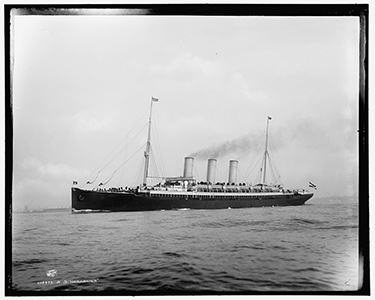
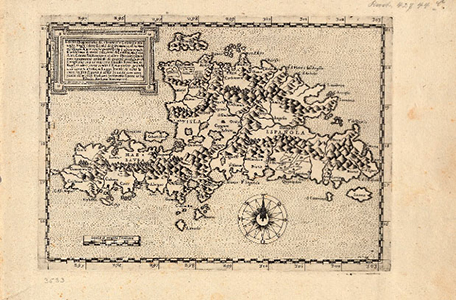
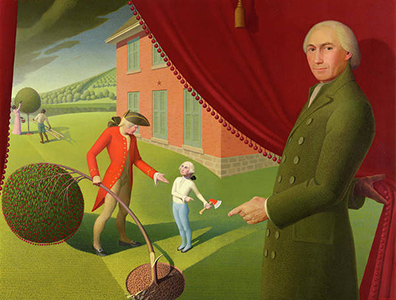
DISTANCE LEARNING LESSONS
Overview
These lessons were created by Deerfield Teachers’ Center staff who worked with area teachers. The lessons meet Massachusetts History and Social Studies and English Language Arts frameworks and are designed to be taught by a teacher working from home or from an empty classroom. They are also appropriate for homeschoolers. There are plans to add more lessons, so please check back in periodically to see what’s new.
Each lesson has one or more PDF's for the lesson, as well as a PDF to be used as a slideshow. The PDF's are bundled together for each lesson in a Zip file for easier download (Click to download). They are also offered as individual downloads.
Click a link to take you to the Lesson:
Lessons for K-5
• Three Great Colonial Enslaved Women from Massachusetts Who Gained their Freedom
• What Made George Washington So Great? A Lesson about Leadership
• Antonina’s World: Eastern European Immigration
• Made in America: Colonial Imports, Exports, and Boycotts
• Seadogs of the Caribbean: The European Explorers’ World on Maps
• Examining the 17th Century Raid on Peskeompskut in Western Massachusetts Through Two Sets of Eyes
Lessons for 7-12
• The County Election: A History of Voting Rights in America
• "Geography is Destiny": Eastern European Immigration to the Connecticut River Valley in Massachusetts
• The Great Migration-How Art Reflects Life
Lessons for K-5
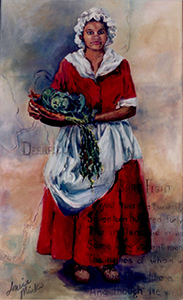
- Three Great Colonial Enslaved Women from Massachusetts Who Gained their Freedom
Grades K-3
Students will hear about the lives, struggles, and accomplishments of three African American women who lived in colonial Massachusetts: Lucy Terry Prince, Phillis Wheatley, and Elizabeth Freeman (Mum Bett). They will understand that these women are considered to be great because they achieved more than people at the time thought was possible for Black women. All three were enslaved as young girls, eventually gained their freedom, and went on to do impressive things. The section about Lucy Terry Prince is best for grades 3 and up, as it refers to some violence. The lesson can be taught over the course of 3-4 sessions.
Click this link to download a Zipped file containing all lesson documents
Individual Files:
Lesson
Slideshow


- What Made George Washington So Great? A Lesson about Leadership
Grade 1
Students will explore, through a variety of images and items, why our first president, George Washington was, and still is, considered to have been a great leader. They will end the lesson by creating their own toasts to Washington.
Click this link to download a Zipped file containing all lesson documents
Individual Files:
Lesson
Slideshow

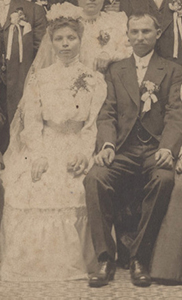

- Antonina’s World: Eastern European Immigration
Grades 2-3
This mini-unit is about a real young woman named Antonina Osmola. She moved from Poland to Turners Falls, Massachusetts in 1905. The unit has 4 sessions: a pre-lesson where students discover some reasons why people chose to leave Eastern Europe, a session about Antonina’s life in Poland and her trip to America, a session about her life in Turners Falls, Massachusetts, and a final session where students write pretend postcards to pretend relatives still living in Poland to tell them about life in America.
Click this link to download a Zipped file containing all lesson documents
Individual Files:
Introduction
Lesson
Slideshow
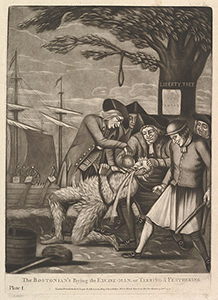
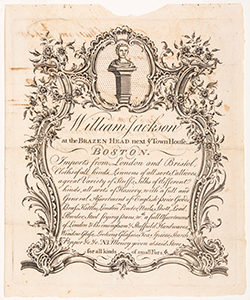
- Made in America: Colonial Imports, Exports, and Boycotts
Grades 3-5
This is a mini-unit comprised of three lessons. The first lesson, “Where Did Colonial People Get Things?”, includes three sessions where students examine interiors of colonial homes to think about where the items they see came from. In the second lesson, “Imports and Exports,” students examine specific items to determine whether they were imported into or exported out of the colonies. Then they read an excerpt from the 1764 Sugar Act to discover why England taxed the colonists. The final lesson, “The Colonists Fight Back,” is a lead-in as to why the Revolutionary War took place. Over the course of two sessions students learn about ways that the colonists expressed their anger about importation laws and taxation without representation. They look at a primary source store ad and a broadside that asked people to boycott that store, they examine the text of a song that asks young women to boycott certain items, and they interpret a political cartoon about boycotting tea. Students are then asked to create their own songs, poems, or political cartoons about boycotting imported goods.
Click this link to download a Zipped file containing all lesson documents
Individual Files:
Introduction
Lesson 1
Lesson 2
Lesson 2 Slideshow
Lesson 3
Lesson 3 Slideshow
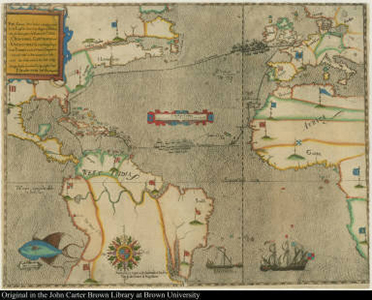

- Seadogs of the Caribbean: The European Explorers’ World on Maps
Grade 4
This lesson has 3 sessions. Students examine 16th century maps of the Caribbean for the sort of information they provided for explorers. By trying to create maps of islands described by Christopher Columbus in words only, students will experience how difficult it was to create an accurate map in this early period.
Click this link to download a Zipped file containing all lesson documents
Individual Files:
Lesson
Slideshow
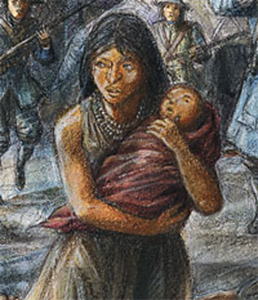
- Examining the Raid on Peskeompskut in Western Massachusetts Through Two Sets of Eyes: 17th Century Native American and English Perspectives Compared
Grade 5
This lesson has two sessions. Students compare two women's lives across cultures in troubled times in Massachusetts in the late 17th century. They examine the 1675 attack on Peskeompskut (now Turners Falls, MA) through each woman’s eyes and begin to understand that differences in values and needs can cause conflict. After researching each woman’s lifestyle, values, and fears, the class discusses differing reasons for why the raid took place. Students also imagine potentially better solutions than war for dealing with conflict.
Click this link to download a Zipped file containing all lesson documents
Individual Files:
Lesson
Slideshow
Lessons for 7-12
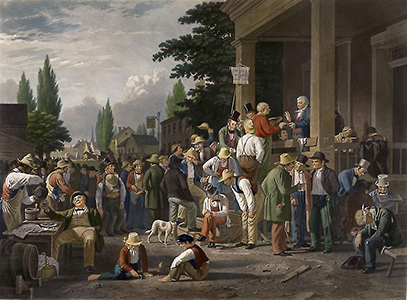
- The County Election: A History of Voting Rights in America
Grades 9-12
There are three lessons in this unit. In the first, students examine quotes and images for information about changes to voting rights from 1776-1984. George Caleb Bingham’s 1852 painting, The County Election, will be examined in Lesson #2 for what information it reveals about voting in Missouri. In Lesson #3 students research, analyze, and evaluate voting laws as they pertained to specific individuals to create and present personas that illustrate what the ‘voting picture’ looked like at various times in the U.S. Students will be able to identify key historical events and understand their meaning; discern the challenges of voting throughout American history, including the fluidity of who and when someone could vote; understand that the decision about who could vote was handled by individual states until well into the 20th century; and synthesize information learned about voting and voting rights. Suffrage (the right to vote in political elections) is also included.
Click this link to download a Zipped file containing all lesson documents
Individual Files:
Overview & Frameworks
Lesson 1
Lesson 1 Slideshow
Lesson 2
Lesson 2 Slideshow
Lesson 3
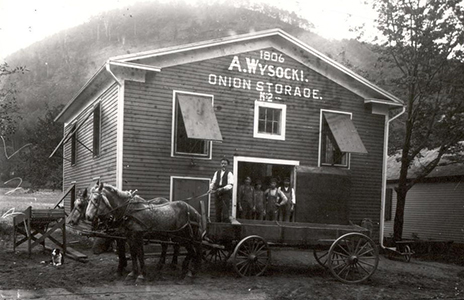
- "Geography is Destiny": Eastern European Immigration to the Connecticut River Valley in Massachusetts
Grades 9-12
Between 1870 and 1920, thousands of Eastern Europeans came to Franklin County, Massachusetts. Some came to live and some to work. Some made it their permanent home and others returned. In this lesson students explore the opportunities and constraints this immigrant group encountered in the places where they settled. Early 20th century newspaper articles will be examined for information about living and working conditions, and what ‘native’ New Englanders thought about the newcomers. Students end the lesson by creating board games about leaving “home” and encountering positive and negative experiences on their way to a final goal such as acquiring a farm.
Download Lesson PDF (No Slideshow)
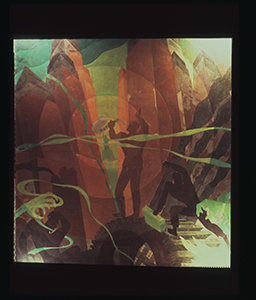
- The Great Migration-How Art Reflects Life
Grades 9-12
In the 20th century, large numbers of African Americans left the rural south, fleeing segregation laws and limited economic opportunities, for large cities in the north and west in search of work and a better life. This was known as the “Great Migration.” It and the American Dream will be explored through examining artwork such as Jacob Lawrence’s “Migration Series” and Aaron Douglas’ painting, “Aspects of Negro Life: Song of the Towers,” and by reading letters written by participants of the Great Migration. Students will match these letters with Lawrence’s paintings with the letter writers’ hopes and the paintings’ topics in mind. The lesson ends with students creating a work of art or a story, song, or poem about an aspect of the Great Migration.
Click this link to download a Zipped file containing all lesson documents
Individual Files:
Lesson
Slideshow
 This project has been made possible in part by the National Endowment for the Humanities: Democracy demands wisdom.
Any views, findings, conclusions, or recommendations expressed in this Web resource do not necessarily represent those of the National Endowment for the Humanities.
This project has been made possible in part by the National Endowment for the Humanities: Democracy demands wisdom.
Any views, findings, conclusions, or recommendations expressed in this Web resource do not necessarily represent those of the National Endowment for the Humanities.







